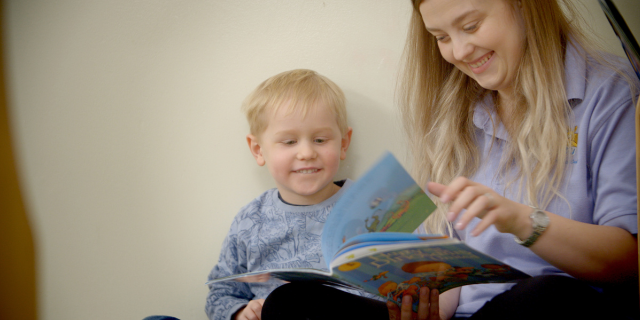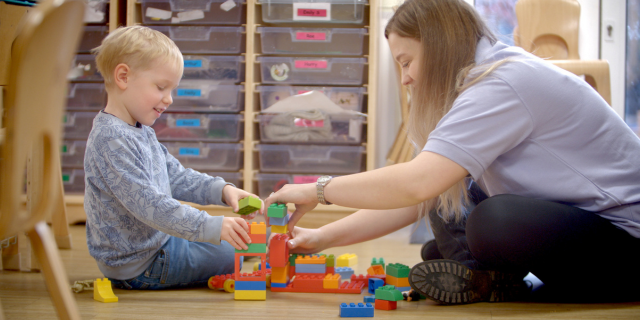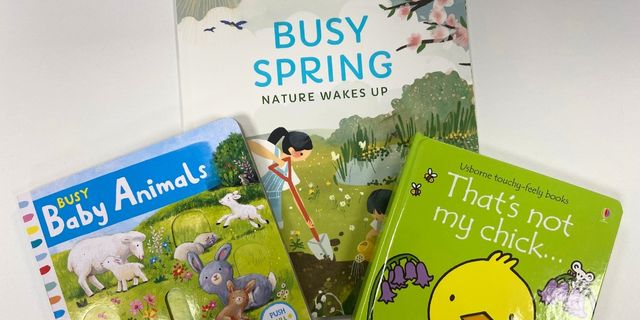School Readiness at Home
School Readiness Programme: I can express myself when I need help
School Readiness at Home

Your child will still be learning to identify, express and manage their emotions as well as expanding their understanding of why things happen. They will do this in many ways, such as via facial expressions, body language, behavior, play and verbal communication. Therefore, it is important for you to support your child to learn about their feelings and how to verbally express themselves in an appropriate and healthy manner.
By encouraging your little one to ask for help when they need it will enable them to manage their feelings in a positive and constructive way, opposed to becoming emotionally overwhelmed which normally leads to them acting out their feelings in other ways, including becoming frustrated and throwing tantrums.
By asking for help and managing their emotions, children will develop resilience and coping skills as well as build their self-confidence and self-esteem, all of which will support their positive transition to school.
Children’s wellbeing is promoted if they are supported to identify, understand and manage their feelings appropriately. This will lead to a lifelong positive attitude and good behavior, as well develop their empathy skills. To achieve this, they need your support and encouragement to manage and express their feelings in positive and constructive ways, you can do this by:
- Naming feelings and helping your child to recognize their feelings – if your child is angry or frustrated label their feelings whilst you are talking to them for example, “I can see you look angry. Can you tell me why?”
- Tune in to your child’s feelings by listening to their verbal and non-verbal communication, and observing their behavior, identify what they may be feeling and help them to identify, express and manage their feelings.
- Talk about your feelings using words your child will understand so they know what you are feeling and why. Role model how you deal with those feelings.
- Acknowledge and praise your child when they talk about their feelings or express them in an appropriate way.
- Take time to listen to how your child is feeling and support them to identify and express these feelings.
Owl Babies by Martin Wadell
This will be a familiar story to your child if they attend Kiddi Caru Day Nurseries Group. The story is about three owlets that wake up one night to find their mother gone. They worry about her absence but are then elated when she returns from her night flight.

Read the story with your child and draw their attention to the feelings of the owlets:
- How did they look and what did they say?
- What did the owlets do when they were feeling sad or happy?
- Ask your child what makes them feel happy and what would they do when they feel like this.
Activity: Facial Expressions
A simple game that allows your child to develop a better understanding on different facial expressions and emotions. This will help them to learn how to express their feelings as well as understand others.
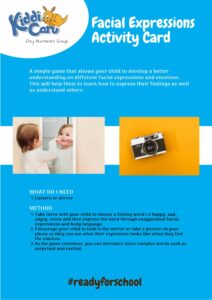
Download
Activity: Happy and You Know It
We all know the classic nursery rhyme – but we have added a new element where your child can use the beloved song to help your child express their emotions.
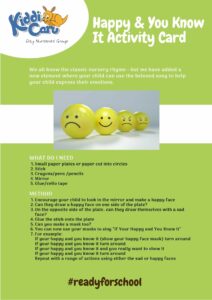
Download
Share this article
Related blog/news
Swipe to see our latest articles.

